
The crisis in Ukraine that was erupted in November 2013 and gradually escalated up until now is another worrisome complication in the Eurasian region. Grievously, recent developments in Ukraine, particularly Russian involvement and the absence of a sound perspective for the solution of this crisis have rendered this problem into a threat menacing the entire Eurasian region.
Russia’s engagement in the crisis in Ukraine, as well as its previous aggression against Georgia in 2008 are the two concrete examples that reveal in the foreseeable future Russia will not hesitate to use its muscles to realize its geopolitical ambitions that have grown since Putin’s ascendance to power. In fact, it would not be wrong to conclude that recent events that are taking place are the indicators of a new era of ‘post-soviet cold war’; what is happening is the ‘return of the reel politik', the footsteps of which was already heard in 2008 in Georgia.
Both the 2008 August War in Georgia and the recent strife in Ukraine reveal that the West, that is the US, the EU and the EU countries, struggling with their internal problems and other international troubles such as the chaos in Syria and Iraq is not prepared enough for the ‘post-soviet cold war’. Not only the absence of vigor and hard-power, but also the lack of an accurate understanding of the developments, coherent and convincing discourse, and implementation of such a discourse into articulate policies are the weaknesses of the West. Given that against Russia’s hard-power the West asserts its soft-powers, failure to realistically analyze the developments, to construct a coherent discourse and to actualize such a discourse in practice are more consequential defects than not having enough muscles.
The latest events, particularly the aftermath of the Russian annexation of Crimea, and the West’s approach to the Karabakh conflict and Armenia within this context evidently demonstrate the failures of the West in all these three vital skills.
The Crisis in Ukraine: A Brief Chronology
The events that resulted in the Russian annexation of Crimea and the Russian-backed insurgency in eastern Ukraine can be traced back the 2004 Orange Revolution, when the victory of the pro-Russian candidate Viktor Yanukovych at the presidential election provoked mass protests that was followed by Ukrainian Supreme Court’s invalidation of the election.
In 2010, Yanukovych was again the winner of the presidential election. However, Yanukovych’s refusal to sign an association agreement with the EU at the Vilnius Summit in November 2013, notwithstanding his promises to deepen of Ukraine’s relations with the EU, once again triggered mass protests, which eventually evolved into the EuroMaid movement. As well documented by international media, between November 2013 and late-February 2014 more than 100 people were killed during clashes between protestors and security forces. As the situation got worse, on 22 February President Yanukovych appeared on TV and labeled the mass protests as coup d’état. This was followed by his removal from the presidency and an order for his arrest. Following that, President Yanukovych fled Kiev and a pro-EU government was formed in Kiev.
Interpreting the developments in Ukraine as a threat to the Russian interests and its ‘grand strategy’ in its ‘near-abroad’, on 1 March 2014 Russian Parliament approved Putin’s request to use force to protect Russian interests in Ukraine. Meanwhile, pro-Russian gunmen began seizing government buildings in Simferopol, the capital of Crimea. On 16 March, a referendum was held in Crimea for its secession from Ukraine. It was announced that 97% of the voters voted for the secession. Two days later, Russia declared incorporation of Crimea into Russia.
In April 2014, clashes began between Ukrainian forces and Russian-backed rebels in the east of Ukraine in Donetsk, Luhansk and Kharkiv. On 11 May, rebels in Donetsk and Luhansk declared independence. On 16 June, Russia cut gas supplies to Ukraine.
The Ukrainian government witnessing its country’s destruction by Russia signed the association agreement with the EU on 27 June as a strategic move. On 17 July, a Malaysian airliner was shot by a rocket fired from a rebel-held territory. 298 people were killed in this incident.
Western Reaction to the Russian Annexation of Crimea
As the conflict escalated in Ukraine, particularly after 25 July, the US and the EU began imposing visa bans on some Russian citizens, blacklisted some individuals and companies, seized their properties, and froze their bank accounts.[1] Russia, in return, imposed some ratliatory sanctions on Western countries such as ban on food imports.[2]
After the controversial 16 March 2014 referendum in Crimea and Russia’s annexation two days later, the advisory body of the Council of Europe on constitutional matters popularly known as the Venice Commission issued a resolution on 21 March 2014 judging the referendum as unlawful.[3] As shall be mentioned below, on 27 March 2014, UN General Assembly passed a non-binding resolution on the territorial integrity of Ukraine and during the Riga Summit of the EU Eastern Partnership[4] a joint declaration condemning the Russian annexation of Crimea was attempted to be issued.
Overall, the response of the West to counter Russian impudence in Ukraine was limited with economic sanctions and condemnations in international platforms. In addition to these, the EU moved towards deepening its ties with Kiev in order to keep Ukraine in Western orbit as a tactical move resembling its incorporation of the eastern and central European countries in 2004 and 2007.
Armenia’s Stance on the Annexation of Crimea
Armenia evinced its stance with respect to the annexation of Crimea quite early. Three days after the referendum in Crimea, the Presidential Office of Armenia issued a press release informing that Armenian President Sargsyan and Russian President Putin made a telephone conversation to discuss a number of current issues including the Karabakh conflict and the former told his counterpart that the referendum in Crimea was “another case of exercise of peoples’ right to self-determination via free expression of will.”[5]
On 27 March 2014, a non-binding resolution affirming the UN General Assembly’s commitment to the territorial integrity of Ukraine within its internationally recognized borders and declaring the invalidity of the 16 March 2014 referendum in Crimea[6]. The Resolution was adopted with 100 votes to 11 votes and 58 abstentions. Armenia was among the ten countries that voted against the resolution, hence practically supported Russian position, together with Belarus, Bolivia, Cuba, North Korea, Nicaragua, Sudan, Syria, Venezuela and Zimbabwe.[7] With this vote, Armenia placed itself among the league of the left-off countries.
After the vote in the UN General Assembly, Artak Zakarian, the chairperson of the Armenian Parliamentary Committee on Foreign Relations posted a message on his Facebook asking rhetorically “Why should have Armenia not supported its ally, if the latter needed such support?”[8]
Almost fourteen months later, in the fourth summit of the Eastern Partnership held in Riga on 21-22 May 2015, a joint declaration condemning the Russian annexation of Crimea was attempted to be issued. However, this could not have achieved because of the opposition of Armenia and Belarus to the identification of the Russian annexation of Crimea as “illegal”. The crisis in the Riga Summit was solved by revising the text of the declaration to state that the EU, not the participants of the summit, “reaffirms its positions taken in the Joint Statement made at the EU-Ukraine Summit on 27 April, including on the illegal annexation of Crimea and Sevastopol.”[9]
Why Armenia Supports Russian Annexation of Crimea?
Three reasons underlie Yerevan’s support to Russian annexation of Crimea. Firstly, it is not a secret that Armenia has fallen into the Russian orbit to an extend of no return since its independence. Armenia has been a member state of the Commonwealth of Independent States, a loose association of the nine former soviet republics, since 1992. Armenia has also been a member of the Collective Security Treaty Organization, a Russia-led inter-governmental military alliance that is viewed as an alternative to the NATO, since 1994. One of the four Russian military bases outside of the Russian Federation is based in Armenia.[10] Recently, Armenia joined the Russia-led Eurasian Economic Union in January 2015 that precludes establishment of a meaningful alliance between Armenia and the EU. Today, almost all strategic and economic assets of Armenia are owned or controlled by Russia or Russian companies. In brief, Armenia is a country that is deeply and unequally dependent on Russia. Because of this dependency, Armenia is out of contention to adopt any position on critical matters that is not confirmed by Russia.
Secondly, Armenia’s position in the Karabakh conflict determines its approach to Russian annexation of Crimea. In order to counter the Azerbaijan’s argument of the Armenian occupation in Karabakh and the surrounding seven regions hosted by mostly ethnic Azeris before 1992-1994, Armenia stresses the principle of self-determination. Russia, too, justifies annexation of Crimea by stressing the same principle. Armenia believes that objecting Russian annexation would be self-contradictory, since self-determination is the main argument of Armenia against the principle of territorial integrity.
Thirdly, Armenia hopes that Russian annexation of Crimea and the incapacity of the international community to give a meaningful response would strengthen Armenia’s hand in the Karabakh conflict. An interesting article with this regard was published in Armenian Mirror-Spectator, the organ of the Armenian Democratic Liberal Party-Ramgavar in the US.[11] The author of this article believing that the Russian annexation of Crimea is advantageous for Armenia wrote that “since the inviolability of the borders in the former Soviet bloc was broken in Kosovo and — with a counter measure — continues today in Crimea, political observers are waiting to see what actions Moscow may resort to next in Trans-Dniester and Karabagh.” In fact, it can be understood that Armenian side believes that Russian annexation of Crimea is a step towards the de facto elimination or at least loosening of the principle of territorial integrity and such an imposed revision of a main international principle provides an advantage to Armenia in the Karabakh conflict.
It is important to note that Armenia’s support to Russian occupation of Crimea receives popular support from the Armenian in Armenia and Karabakh. The eurasianet.org reports that after the referendum in Crimea the de facto authority in Karabakh held a rally in solidarity with Russia.[12] On 18 March, political groups in Karabakh issued a joint declaration that hailed Crimea’s annexation as a model for the resolution of the Karabakh conflict.[13] Notably, according to a survey conducted by Gallup International Association in Armenia, up to 80% of the 1,067 respondents stated their approval of the occupation in Crimea and 73% of the same group held that Armenia should officially recognize Crimea as Russian territory.[14]
Western Response to Armenia’s Stance
Armenia’s support to Russia facilitated only few responses from the West. After the vote in UN General Assembly, the U.S. Embassy in Yerevan expressed the disappointment of the US with Armenia’s vote against the UN General Assembly resolution that condemned Crimea’s annexation by Russia”, yet also stated that Washington would continue to “engage with Armenia on many issues.”[15]
Sweden’s Minister of Foreign Affairs Carl Bildt underscored that the West does not accept Armenia’s position. In comparison to Ukraine, Bildt said: “I think [Armenia and Ukraine] are in a different league. The Association Agreement also sort of signals a sort of political affinity that is there in a number of areas. We saw, for example, the Armenians now coming out in support of policies versus Ukraine. So I don't think they would qualify to be in the same league in terms of political affinity any longer.”[16]
Overall, there has not been a significant Western response to Armenia and few reactions given remained only verbal criticims.
The Nasty Realities Revealed by the Crisis in Ukraine
Until now, West’s economic sanctions negatively affected Russian economy, yet there has been no dramatic downfall of the Russian economy. On the contrary, recent statistics reveal that Russian economy is recovering. Moreover, Russia is on the way to create its Eurasian Economic Union as a regional non-western bloc that would provide it with a significant leverage in the near future. The nuclear deal concluded between Iran and P5+1 (China, France, Russia, the UK, the US and Germany) is likely to be a game-changer development. All in all, it is not realistic to expect from the economic sanctions against Russia to bring the desired results.
For the time being and the in the short run at least, the only available leverage that the West has against Russia is its soft power, i.e. its championship and promotion of the liberal values, human rights, democracy and rule of law, in addition to its popular image as a ‘heaven in the earth’. However, the West is losing its persuasiveness for the incoherence of its discourse and its incompetency to implement such a discourse into articulate policies.
Among other thing that might be pointed out, the West’s stance on the Karabakh conflict and its approach to Armenia are the two concrete examples that clearly illustrate these two deficits.
Double Standards in West’s Discourse and Practice
The EU’s stance on the Karabakh issue is flawed by an overwhelming double-standard vis-à-vis other conflicts in the Eurasian region. Svante E. Cornell, S. Frederick Starr and Mamuka Tsereteli in their recent report entitled A Western Strategy for the South Caucasus (February 2015)[17] explain EU’s “incoherence on territorial integrity” as follows:
During 2011-13, the European Union sought to get both Armenia and Azerbaijan
to conclude Association Agreements within the framework of the Eastern Partnership; neither did so. When the EU wanted to sign such agreements with Georgia and Moldova it had included identical language on its commitment to the “territorial integrity” of both countries. But then, in hopes of getting a similar agreement with Armenia, it backed away from this principled stand in the draft documents to be signed with Azerbaijan. By so doing, the EU winked at Armenia’s occupation of Azerbaijani territory and all but guaranteed that Azerbaijan would not associate itself with the EU. In spite of the EU having thus compromised its own principles in the name of expediency, it took only one meeting for Vladimir Putin to coerce Armenia’s president into abandoning the European agreement, already planned for signing, and opting instead for the Eurasian Customs Union.
The principle of territorial integrity found renewed support in Western rhetoric following Russia’s brazen annexation of Crimea. But Western leaders have yet to recognize the substantial parallels between Crimea and Karabakh. It is true that Armenia’s annexation of Karabakh is de facto rather than formal; yet the unwillingness by the EU, but also the U.S., to apply the same principle to similar situations undermines the credibility of Western governments.
As Cornell, Starr and Tsereteli clearly put, Russian annexation of Crimea is the latest case that unearths once again the contradictory standards of the West or the absence of standards, at all.
At that point it is striking to note that UN Security Council resolutions numbered 822, 853, 874 and 884 issued in 1993 confirm the occupation of the Karabakh and the surrounding seven regions.[18] Recently, the judgment of the European Court of Human Rights Grand Chamber on Chiragov and Others v. Armenia on June 2015[19] confirmed once again Armenia’s occupation in these Azerbaijani territories.[20]
Yet, despite these internationally valid documents, the US, the EU and some EU countries continue to provide economic and indirect political support to Armenia vis-à-vis Azerbaijan. This is a grave contradiction that these actors need to correct if they wish to remain reliable and persuasive players in global politics.
Secondly, the self-contradicting West facilitates the consolidation of a perception of the West as a monkey mouth bluffer. This diminishes West’s persuasive power and an image of the West as ‘a barking, but not biting dog’ settles. It is not difficult to imagine that Russia and other opponents of the West use this image for their own benefit to persuade countries to comply with themselves at the expense of the Western interests.
The West’s Inability to Come to Terms with Some Realities that Shout Loud
We are talking about the ‘post-soviet cold war’ and the ‘return of reel politic’. Winning the reel politik game requires sound analyses, strategy and tactics. Moreover, to win the reel politik game, players need to decide well who their friends and foes are and who is the pariah of whom. So far, it seems that Russia has already decided on these issues and made its plans accordingly. At the moment Russia is the better player in the game and the West just recently comes to realize that reality. What the Western actors need is also to decide their enemies, foes, allies and collaborators and develop a common strategy and common policies accordingly based on realistic interpretation of the concrete political developments.[21]
It is more than obvious that Armenia has already fallen into Russian orbit as mentioned above. Recently, Armenia’s dependency on Russia has reached to a point of no return by its entry into Russia-led Eurasian Economic Union in January 2015. If nothing else, Armenia’s support to Russian annexation of Crimea should have driven the West to come to terms with this reality. Yet, by ignoring all the counter-evidence, the West still acts as if there is still a chance to pull Armenia away from the Russian orbit. In practice, the West still favors ‘a friend of a foe’. This is self-defeating. It seems that what conditions Western policies are sentiments, presumptions and prejudices rather than rational interpretations. This is self-destructive.
Becoming the Part of the Problem
The inconsistency and irrationality of the West do not jeopardize only the Western interests. They also jeopardize the prospects of lawful and peaceful resolution of the Karabakh conflict in the South Caucasus, which has the potential to become a cause of wider-spread conflicts and clashes if Russia decides to utilize this unresolved conflict for its impudent ambitions.
Armenia being aware of Western calculations to pull Armenia away from the Russian orbit and the ideological presumptions of the West about Armenia, which are mostly a consequence of the great marketing success of Armenia, Armenian diaspora and the Armenophile circless in the West, as well the West’s deep-rooted prejudices against the ‘oriental-Muslim peoples’, plays a game of ‘complementarity’ between the West and Russia being almost certain that it will be favored and excused by the West. Certainly, when one of the two fighting children, that is Armenia, is treated as the favorite child and the other child, that is Azerbaijan, is treated as the foster child, the former takes courage not to compromise, but to push further. This is what happens in Karabakh conflict. Armenia pushes further to manipulate and flex international law, norms and procedures knowing that there will not be any consequences for itself. This creates another obstacle for the resolution of the Karabakh conflict in lawful and peaceful ways.
Spoiling Armenia, which does not show any sign of compromise, on the contrary adopts a tougher stance day by day, the West is becoming the part of the Karabakh problem in the South Caucasus. In fact, the West gradually becomes the problem itself.
Overall, the recent performance of the West in the Eurasian region and the South Caucasus is nothing but deplorable. Inconsistency, incompetence and wrong interpretations are the three underlying reasons of this pitiful situation. If the West wants to remain standing in the ‘post-soviet cold war’, it needs to go through a process of self-criticism and revise its defective discourse and practice. Only then, the West may become a positive factor for the prosperity and peace in Eurasia and the South Caucasus.
[1] For the US and EU sanctions see, http://www.bbc.com/news/world-europe-26672800 and http://www.reedsmith.com/files/Publication/9221cf81-e4f7-4907-ab2c-f7dc249eac58/Presentation/PublicationAttachment/441e0ec9-dbd8-4c3a-b1fa-0bf7ed4d5872/alert_14-255.pdf. For US imposed sanctions see, http://www.treasury.gov/resource-center/sanctions/Programs/Pages/ukraine.aspx; http://www.state.gov/e/eb/tfs/spi/ukrainerussia/. For EU imposed sanctions see, http://europa.eu/newsroom/highlights/special-coverage/eu_sanctions/index_en.htm.
[2] http://www.rferl.org/content/russia-extends-food-import-ban/27091270.html
[3] http://www.venice.coe.int/webforms/documents/default.aspx?pdffile=CDL-AD(2014)002-e
[4] EU Eastern Partnership was established in May 2009 by a joint declaration signed by the EU and in Prague Armenia, Azerbaijan, Georgia, Belarus, Moldova and Ukraine to enhance EU’s relations with the countries at its eastern border. In fact, Russia views EU’s opening to its eastern neighborhood as an attempt to create a ‘Western sphere of influence’, hence as a threat.
[5] http://www.president.am/en/press-release/item/2014/03/19/President-Serzh-Sargsyan-conversation-with-the-President-of-Russian-federation/
[6] http://www.un.org/en/ga/search/view_doc.asp?symbol=A/RES/68/262
[7] http://www.un.org/apps/news/story.asp?NewsID=47443#.Vb-fevmqpBc
[8] http://www.eurasianet.org/node/68238
[9] http://www.consilium.europa.eu/en/meetings/international-summit/2015/05/21-22/
[10] Other three bases are in Belarus, Kirgizstan and Tajikistan.
[11] http://www.mirrorspectator.com/2014/03/24/crimean-crisis-creates-political-maze-for-armenians/
[13] http://www.eurasianet.org/node/68171
[14] http://arka.am/en/news/society/some_80_percent_of_armenians_endorse_russia_s_annexation_of_crimea_survey/
[15] http://www.azatutyun.am/content/article/25318938.html
[16] http://www.rferl.org/content/ukraine-carl-bildt-interview/25306801.html
[17] http://www.silkroadstudies.org/resources/pdf/publications/1502Strategy.pdf
[18]http://www.hazar.org/blogdetail/blog/a_comparative_analysis_of_the_west%E2%80%99s_approach_to_crimea_and_nagorno_karabakh_a_failure_or_double_standards__847.aspx
[19] http://hudoc.echr.coe.int/eng?i=001-155353#{"itemid":["001-155353"]}
[20] http://hudoc.echr.coe.int/eng?i=001-155353#{"itemid":["001-155353"]}
[21] There have been attempts of the EU to identify common foreign policy. However, when the crisis in Ukraine erupted, EU countries failed to adopt a common stance vis-à-vis Russia.
© 2009-2025 Center for Eurasian Studies (AVİM) All Rights Reserved
No comments yet.
-
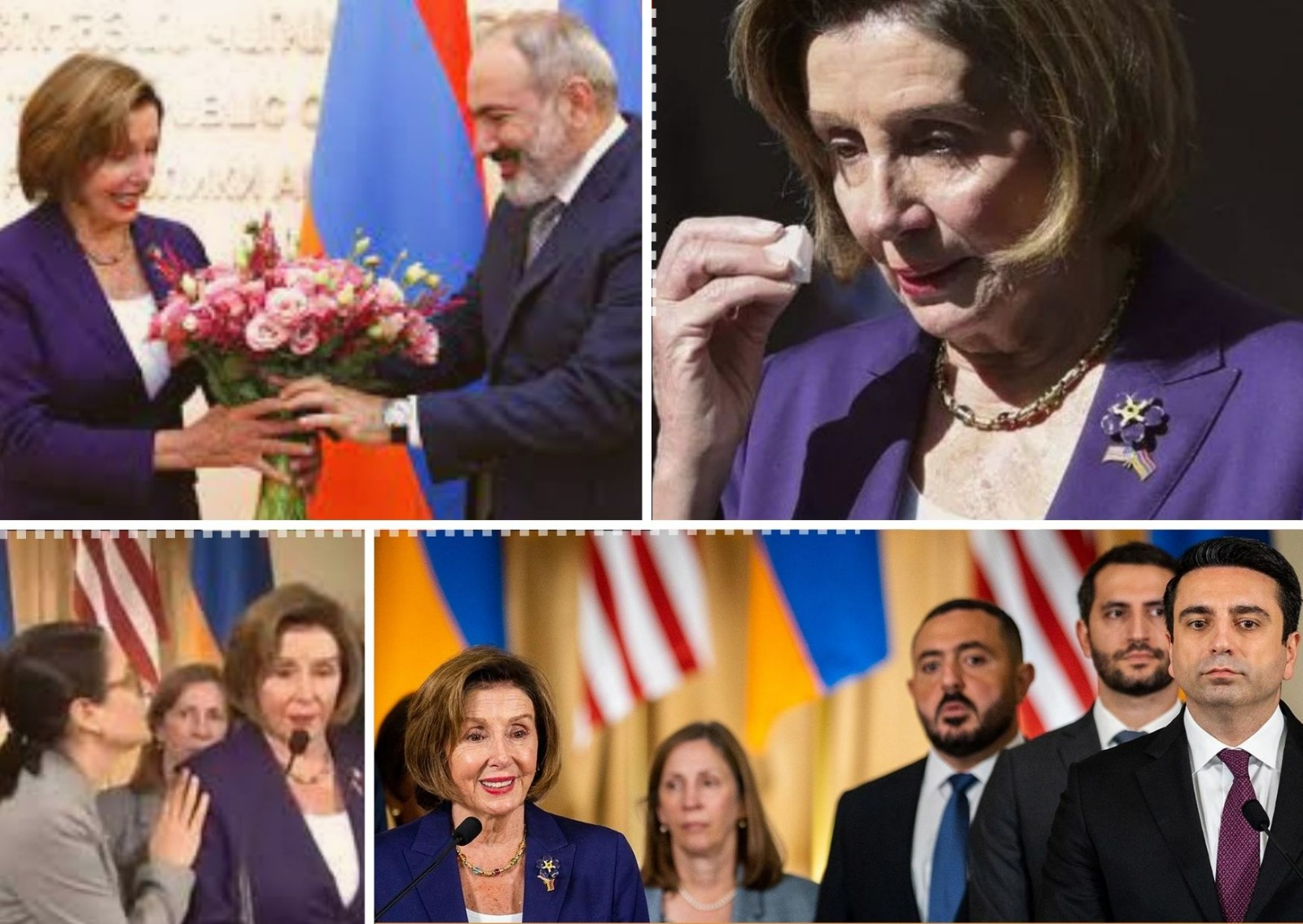 AN INQUIRY INTO NANCY PELOSI’S VISIT TO ARMENIA
AN INQUIRY INTO NANCY PELOSI’S VISIT TO ARMENIA
Turgut Kerem TUNCEL 23.09.2022 -
 BECOMING THE PART OF THE PROBLEM: THE FAULTY POLICIES OF THE WEST IN EURASIA AND THE SOUTH CAUCASUS
BECOMING THE PART OF THE PROBLEM: THE FAULTY POLICIES OF THE WEST IN EURASIA AND THE SOUTH CAUCASUS
Turgut Kerem TUNCEL 11.08.2015 -
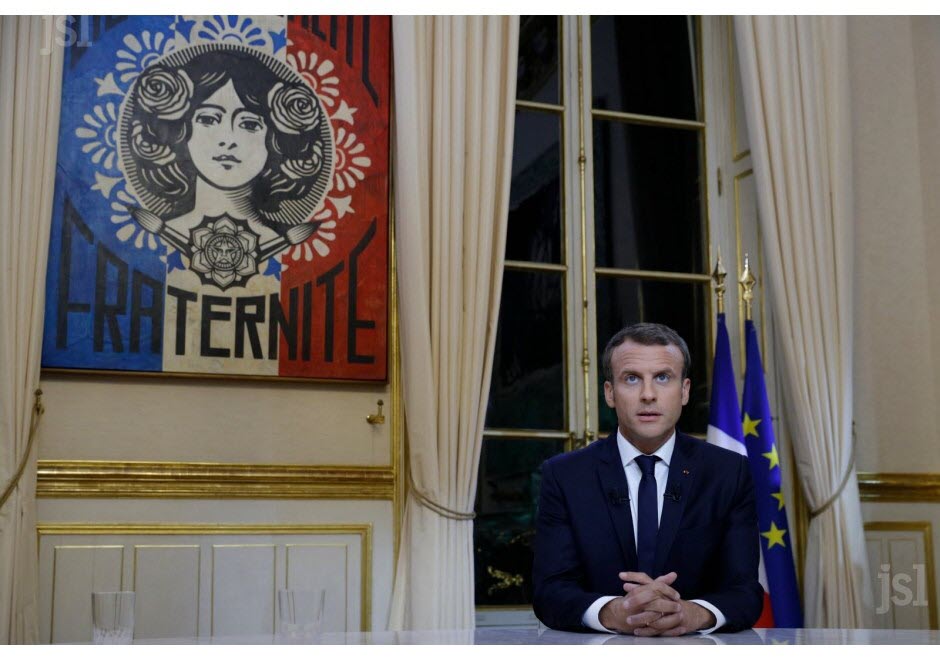 THE FIGHT OF FRANCE AGAINST FRANCE AND THE FUTURE OF EUROPE
THE FIGHT OF FRANCE AGAINST FRANCE AND THE FUTURE OF EUROPE
Turgut Kerem TUNCEL 22.02.2019 -
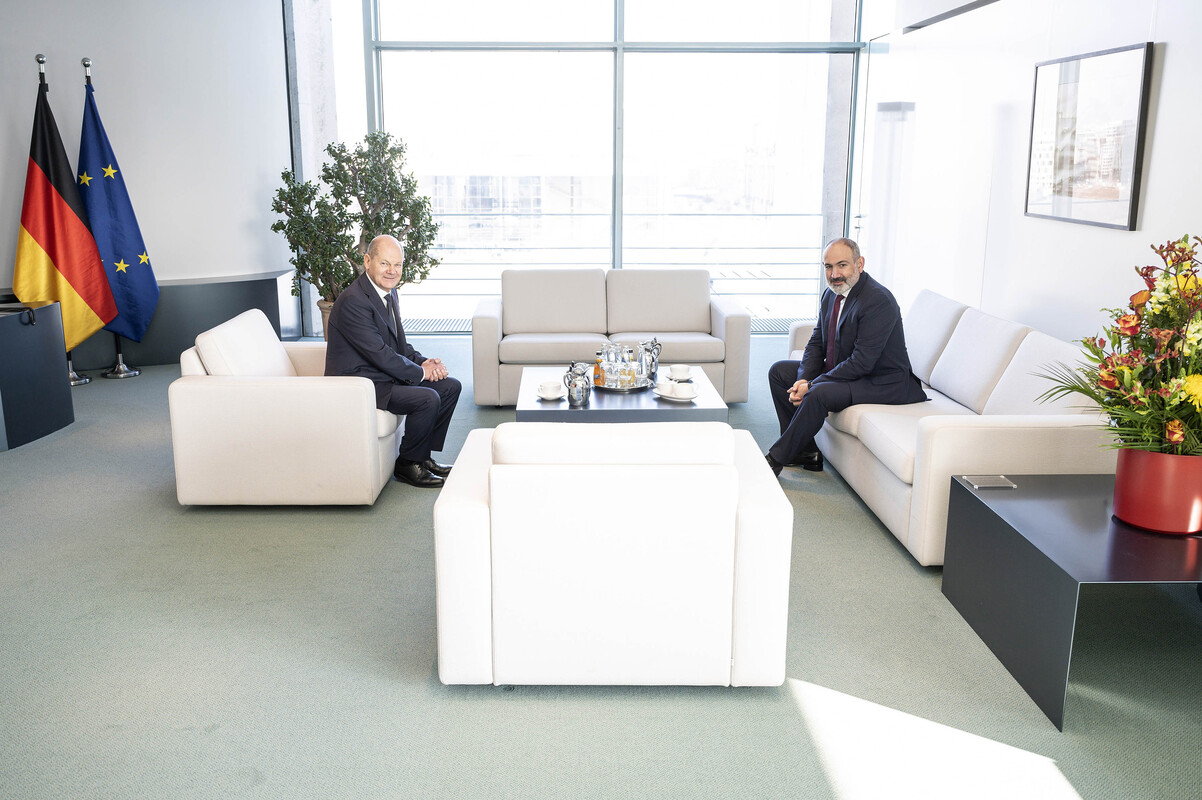 PASHINYAN'S GERMANY VISIT
PASHINYAN'S GERMANY VISIT
Turgut Kerem TUNCEL 09.03.2023 -
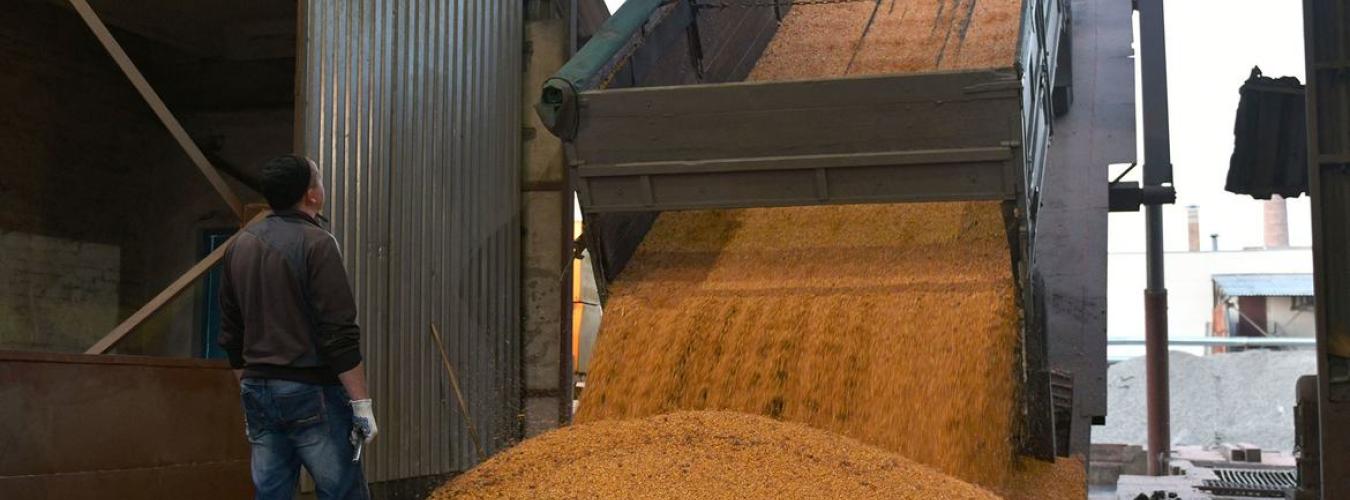 THE GRAIN INITIATIVE AND THE BLACK SEA SECURITY - I
THE GRAIN INITIATIVE AND THE BLACK SEA SECURITY - I
Turgut Kerem TUNCEL 03.08.2023
-
 BECOMING THE PART OF THE PROBLEM: THE FAULTY POLICIES OF THE WEST IN EURASIA AND THE SOUTH CAUCASUS
BECOMING THE PART OF THE PROBLEM: THE FAULTY POLICIES OF THE WEST IN EURASIA AND THE SOUTH CAUCASUS
Turgut Kerem TUNCEL 11.08.2015 -
 GEORGIA'S CROSSROADS: STABILITY AND SOVEREIGNTY
GEORGIA'S CROSSROADS: STABILITY AND SOVEREIGNTY
Teoman Ertuğrul TULUN 17.12.2024 -
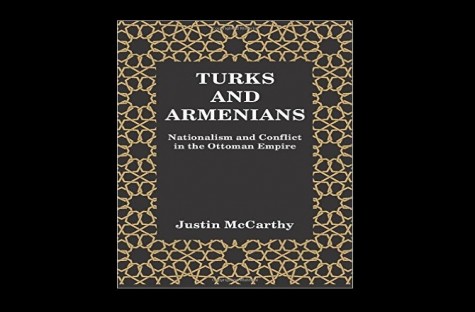 CHAPTER BY CHAPTER SYNOPSIS AND REVIEW OF TURKS AND ARMENIANS: NATIONALISM AND CONFLICT IN THE OTTOMAN EMPIRE BY JUSTIN MCCARTHY - 7
CHAPTER BY CHAPTER SYNOPSIS AND REVIEW OF TURKS AND ARMENIANS: NATIONALISM AND CONFLICT IN THE OTTOMAN EMPIRE BY JUSTIN MCCARTHY - 7
Hazel ÇAĞAN ELBİR 22.10.2015 -
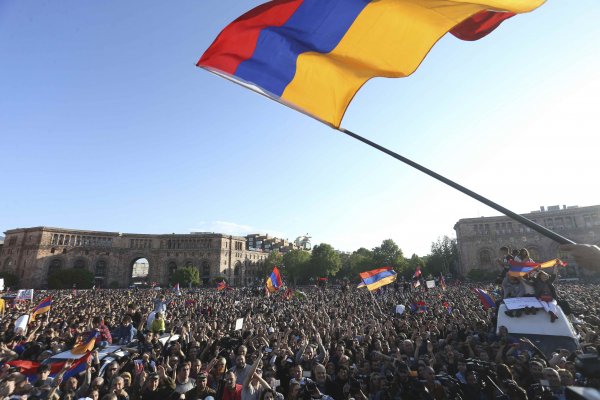 THE RULE STARTED WITH DEMONSTRATIONS ENDED WITH DEMONSTRATIONS
THE RULE STARTED WITH DEMONSTRATIONS ENDED WITH DEMONSTRATIONS
Tutku DİLAVER 14.05.2018 -
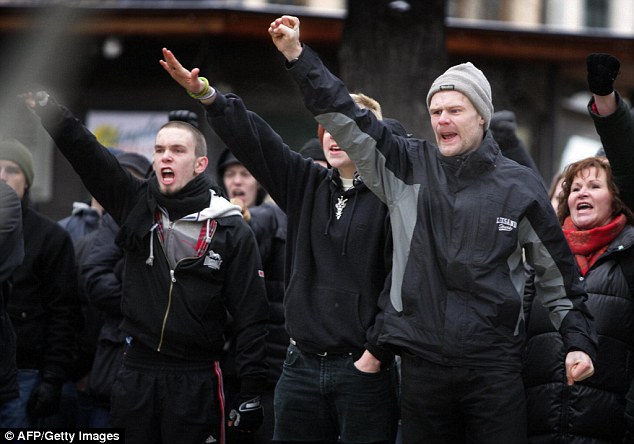 NEO – NAZISM IS GAINING STRENGTH IN THE NORDIC COUNTRIES
NEO – NAZISM IS GAINING STRENGTH IN THE NORDIC COUNTRIES
Hazel ÇAĞAN ELBİR 20.09.2018
-
25.01.2016
THE ARMENIAN QUESTION - BASIC KNOWLEDGE AND DOCUMENTATION -
12.06.2024
THE TRUTH WILL OUT -
27.03.2023
RADİKAL ERMENİ UNSURLARCA GERÇEKLEŞTİRİLEN MEZALİMLER VE VANDALİZM -
17.03.2023
PATRIOTISM PERVERTED -
23.02.2023
MEN ARE LIKE THAT -
03.02.2023
BAKÜ-TİFLİS-CEYHAN BORU HATTININ YAŞANAN TARİHİ -
16.12.2022
INTERNATIONAL SCHOLARS ON THE EVENTS OF 1915 -
07.12.2022
FAKE PHOTOS AND THE ARMENIAN PROPAGANDA -
07.12.2022
ERMENİ PROPAGANDASI VE SAHTE RESİMLER -
01.01.2022
A Letter From Japan - Strategically Mum: The Silence of the Armenians -
01.01.2022
Japonya'dan Bir Mektup - Stratejik Suskunluk: Ermenilerin Sessizliği -
03.06.2020
Anastas Mikoyan: Confessions of an Armenian Bolshevik -
08.04.2020
Sovyet Sonrası Ukrayna’da Devlet, Toplum ve Siyaset - Değişen Dinamikler, Dönüşen Kimlikler -
12.06.2018
Ermeni Sorunuyla İlgili İngiliz Belgeleri (1912-1923) - British Documents on Armenian Question (1912-1923) -
02.12.2016
Turkish-Russian Academics: A Historical Study on the Caucasus -
01.07.2016
Gürcistan'daki Müslüman Topluluklar: Azınlık Hakları, Kimlik, Siyaset -
10.03.2016
Armenian Diaspora: Diaspora, State and the Imagination of the Republic of Armenia -
24.01.2016
ERMENİ SORUNU - TEMEL BİLGİ VE BELGELER (2. BASKI)
-
AVİM Conference Hall 24.01.2023
CONFERENCE TITLED “HUNGARY’S PERSPECTIVES ON THE TURKIC WORLD"









